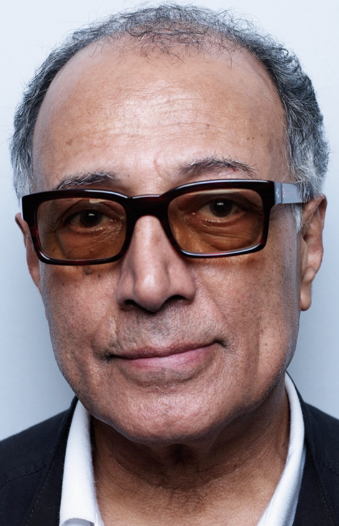December 16,2022

Four Iranian films have made the list of 100 best films of all time compiled by the British Film Institute (BFI) from a poll of 480 living directors.
Three of the films were directed by the late Abbas Kiarostami and the fourth was the Oscar-winning “A Separation” directed by Asghar Farhadi.
The poll was taken by BFI’s magazine, Sight and Sound, among 480 film directors. The poll has been taken every 10 years since 1992. The directors are asked to pick the greatest 10 films of all time, with no ranking. The magazine then tabulates the votes with each film named getting one vote.
The top three films in this year’s directors’ poll were “2001: A Space Odyssey, from 1968, directed by Stanley Kubrick, “Citizen Kane,” from 1941, directed by Orson Welles and “The Godfather,” from 1972 directed by Francis Ford Coppola.
The four Iranian films that made the list are:
#9—“Close-up,” from 1989, directed by Kiarostami;
#72—“A Separation,” from 2011, by Farhadi;
#72—“Where is the Friend’s House,” from 1987, by Kiarostami; and
#93—“Taste of Cherry,” from 1997, by Kiarostami.
The two films ranked 72nd are correct. There were many ties in the listing.
The BFI also takes a broader poll of the 100 best films involving 1,639 critics, programmers, curators, archivists and academics, who each submit their best 10 lists. That poll has been taken since 1952.
In that poll, one Iranian film made not just the top 100 but the top 20. Kiarostami’s “Close-up” ranked 17th in that poll, which ranked the top three films in history as “Jeanne Dielman,” from 1975, directed by Chantal Akerman, “Vertigo,” from 1958, directed by Alfred Hitchcock, and in third place “Citizen Kane,” from 1941, directed by Orson Welles. For many decades, Citizen Kane came out #1 in this poll. The #1 film this year had only ranked 36th a decade ago.
Kiarostami’s “Close-up” is not the best-known of Kiarostami’s films but stands out among those who follow cinema. It blurs the distinction between documentary and fiction as it relates the court case of an unemployed printer accused of impersonating film director Mohsen Makhmalbaf for the purpose of obtaining money from a well-to-do family.
The film includes footage of the actual trial. Kiarostami also uses the accused, Hossein Sabzian, playing himself.
BFI said Kiarostami “fragments the story into diverse meandering strands that frequently frustrate expectations while still remaining intelligible and engrossing. ‘Important’ events may be left unseen; in their place, sequences in which nothing of any clear consequence happens. Re-enactments occur without giving away whose point of view they represent.
“The more ‘information’ we’re offered about the case, the more we come to realize that there are no easy answers to any of the questions being raised. The plot thickens – except that we do, eventually, understand that the accused, for all his strange, seemingly unmotivated deceptions, is undoubtedly a decent human being, worthy of our attention, sympathy and respect….
“Typical of Kiarostami’s best work is his admission – indeed, insistence – that the film is incomplete until viewers respond by engaging with its artifice and actively using their imaginations.”
The three films on the list by Kiarostami was a large number from a single director but not a record. Four films each made the list by directors Akira Kurosawa, Ingmar Bergman, Francis Ford Coppola, Robert Bresson and Stanley Kubrick.























